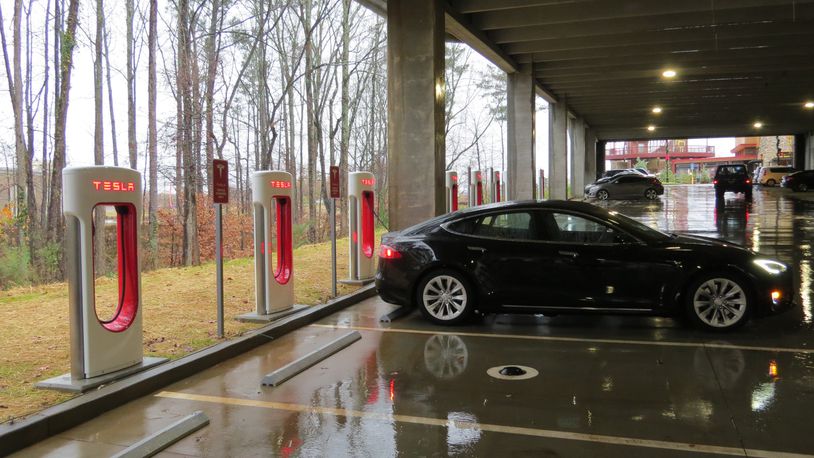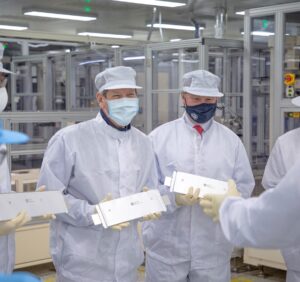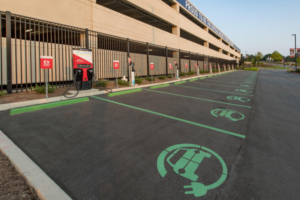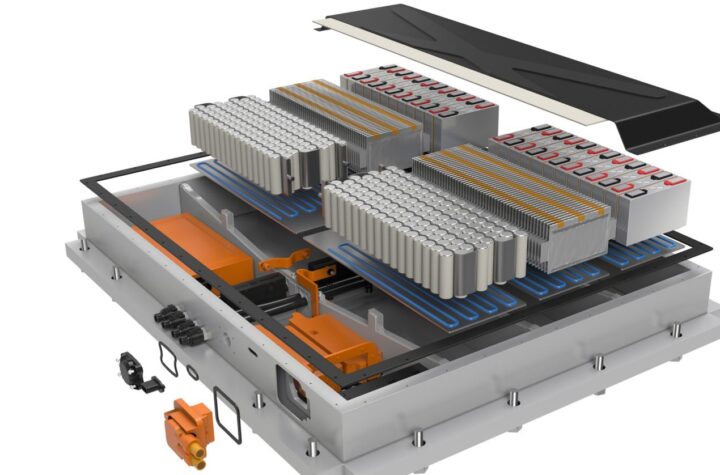
Almost daily, it seems, automotive news headlines announce new electric vehicle production plans and goals from OEMs, fueled by strong support from all levels of government in their respective countries.
In keeping with what it sees as a history of supporting innovation and business growth, the U.S. state of Georgia is actively assessing the growing needs of the electric vehicle (EV) and mobility sector and building on existing assets. Led by Governor Brian Kemp, Georgia believes it is well on its way to completely revam

ping its supply chain, infrastructure, workforce training, government policies, and even its overall value proposition in order to better meet the shifting needs of the EV and mobility sector.
Automotive Industries (A) asked Governor Kemp how the shift to EV manufacturing is changing the automotive supply chain in the state.
Kemp: Starting with rare earth metals, all the way to the assembly of EVs and battery recycling, everything is changing – and fast. Looking specifically at batteries, the U.S. only produces 10% of the world’s lithium-ion batteries.
EV cars are designed around the battery, and many of the components needed to make these cars operational are currently being made overseas. We need to bring them here.
If you look at the full life-cycle, we also see a need for new facilities to accommodate battery recycling.
And it’s clear we have to consider consumers’ needs. Drivers need access to recharging stations to make these cars a viable part of their lifestyles. Right now, Georgia offers more charging stations per capita than anywhere else in the United States, except one state on the West Coast, so in Georgia, we’re actively identifying ways to expand the charging infrastructure to cover metro and rural regions.
AI: Who are some of the mobility companies recently investing in Georgia?
Kemp: In 2018, SK Innovation announced plans to build a massive lithium-ion battery plant in Commerce, Georgia, and since then the company has shared plans to bring their total investment to nearly $2.6 billion. SK has already started production, and they’ll be supplying batteries for VW as well as a new all-electric Ford F150 Lightning.

The SK investment has created a ripple effect. Other global e-mobility suppliers and leaders like Enchem Ltd., TEKLAS, GEDIA Automotive Group, and Heliox have announced significant, job-stimulating investments in Georgia. I have been talking to these companies personally since taking office in 2019, and visiting them overseas in Korea and Germany, to make sure that Georgia is taking the right steps to support their moves toward electrification.
The state is also a hotbed for startups and home to a rapidly growing number of innovative companies moving into the electric mobility space. This includes serious growth in renewable energies; like Plug Power, a major provider of hydrogen solutions, that broke ground in August on its manufacturing plant in Georgia.
It’s been really exciting to be working so closely with companies as part of this transition.
AI: What are the critical mobility investments that will establish Georgia as a leader in e-mobility?
Kemp: Georgia is fortunate to already be home to some of the leading experts focused on coming up with solutions in e-mobility, and we have some unique examples of cross-industry companies coming together to collaborate.
Curiosity Lab at Peachtree Corners, for example, is a city-owned and operated living laboratory. They have designed it specifically to test technology that has “graduated” from a closed laboratory environment in a safe, real-world environment. They have a 5G-enabled three-mile autonomous vehicle test track and smart city infrastructure located in a 500-acre technology park that thousands of people and vehicles interact with every day. The City of Peachtree Corners is serving as a model for other cities, and they have launched a new solar roadway system, which produces energy for an EV charging station at city hall.
Separately, the city has also established a new EV fast-charging plaza for up to 16 vehicles. Georgia and our wide network of partners are financing t

hese programs because we see opportunity here. We believe Georgia can lead by finding solutions to these EV infrastructure shortfalls that are holding up wider growth for this industry.
AI: You mentioned the overall value proposition – what else makes Georgia the place for e-mobility companies?
Kemp: We’ve developed a very competitive environment here with a powerful and positive business climate. Our extensive infrastructure offers easy access to market. The Georgia ports, which are already a major player for automotive imports, have expanded their inland connectivity to improve efficiencies transporting materials. And our geographic location puts Georgia within hours, or even minutes, to OEMs across the Southeast’s “Automotive Alley.”
We frequently see that Georgia’s access to a skilled and educated workforce is a deciding factor for attracting companies. Over the past year, Georgia’s university system awarded a record number of degrees. Our technical college system lets technical schools partner with their communities to design certification programs that meet the workforce needs of local companies. Georgia was also the first state to create a workforce training program that is custom-designed for qualifying companies, and Quick Start has been ranked the number one training program in the nation for 14 years now.
AI: Anything else you would like to add about what the State of Georgia is doing to meet the future needs of e-mobility?
Kemp: We are approaching this challenge as if we’re establishing a new industry from scratch. In July 2021, my administration established the Electric Mobility and Innovation Alliance (EMIA), a coalition of government, private industry, electric utilities, nonprofits, and other relevant stakeholders to focus on continued growth of the electric mobility ecosystem throughout the state. Committees have been formed to set objectives for supply chain, innovation, infrastructure, workforce, and policy recommendations that further enhance the state’s attractiveness to the electric mobility industry.





More Stories
DuPont materials science advances next generation of EV batteries at The Battery Show
How a Truck Driver Can Avoid Mistakes That Lead to Truck Accidents
Car Crash Types Explained: From Rear-End to Head-On Collisions